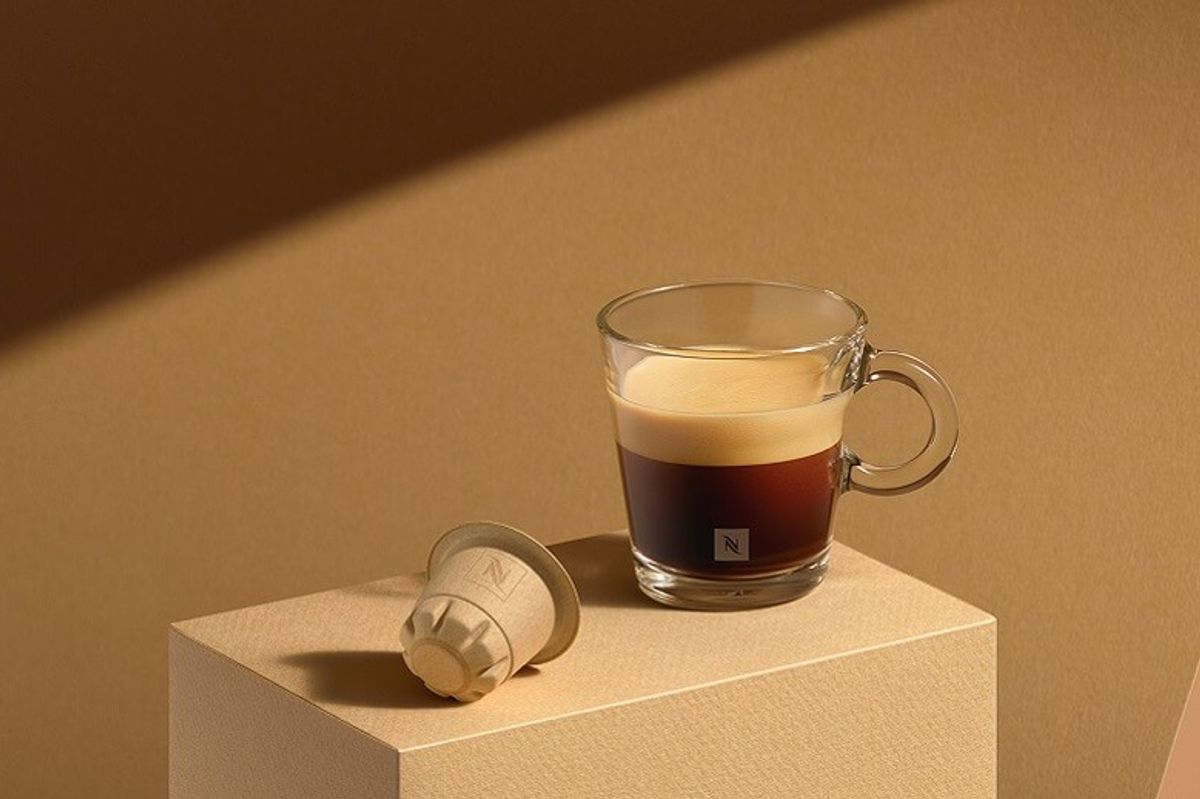Nespresso is launching compostable coffee capsules next year in a bid to fend off competitors trying to muscle in on the lucrative home coffee market with ever-more eco-friendly alternatives.
One of Swiss food giant Nestle's flagship brands, Nespresso - which makes home coffee machines, pods and accessories - will launch paper-based capsules that can be composted at home "in France and Switzerland in 2023" before spreading out to other markets in 2024, Nespresso chief executive Guillaume Le Cunff told AFP.
Like the capsules announced earlier this month by Nescafe Dolce Gusto - another Nestle brand - a thin film of compostable biopolymer inside the paper seals in the coffee to keep it fresh.
Le Cunff said the new Nespresso capsules, which can be used in the brand's existing machines, will not replace aluminium pods but rather offer "an alternative" for those who want to compost their capsules rather than having to take them to recycling points or back to the shop.
"It's a complement. The objective is to offer the choice," he said.
It took three years of research to come up with the capsule, with developers going through 28 prototypes.
"We had to create coffees that work with this packaging. While the engineers were working on the packaging, our coffee experts were developing new coffees, working on the roasting and the grinding," said Le Cunff.
With 6.4 billion Swiss francs (£5.66bn) of sales in 2021, Nespresso is the second-biggest coffee brand in the world behind stablemate Nescafe, and the biggest in western Europe, according to market researchers Euromonitor International.
"Nespresso remains the leader in the portioned coffee segment. However, there is more competition," Jon Cox, an industry analyst with the Kepler Cheuvreux financial services company, told AFP.
Launched in 1986, Nespresso capsules revolutionised coffee consumption in Europe by making it possible to brew up an espresso at home.
Its success saw rivals quickly attempt to capitalise, triggering fierce court battles to try to stop others producing their own capsules that would work in Nespresso machines.
Le Cunff said Nespresso would form an interest group bringing together public bodies, companies, NGOs and waste collectors to raise consumer awareness on composting.
‘Inflation won't roast sales’
Despite Europe feeling the pinch from soaring inflation, Le Cunff told AFP he believes their coffee capsules are creature comforts and will therefore stay in demand.
Inflation is running at 10.6 percent in the eurozone and household budgets are under pressure.
But Le Cunff said that even in periods when customers have to tighten their belts, they tend to stick with their "everyday" small pleasures - such as having a coffee.
"When you have to raise prices to guarantee quality - because the value chain is subject to inflation - the idea is to be reasonable, by only doing it where absolutely necessary," said Le Cunff, Nespresso Nespresso’s chief executive since 2000.
"It remains a daily expenditure, a moment of pleasure, a moment for oneself. And I'm not sure people want to abandon having this moment for themselves.
"We'll see what the future holds, but we are very confident."
That said, Nespresso sales volumes dropped by 1.9 percent in the first nine months of the year, notably in Europe, offset by sales continuing to grow in North America.
Le Cunff said global sales accelerated in 2020 and 2021, as people worked from home during the Covid-19 pandemic.
But this year, people are working from home less and going out more -- something the company has tracked via an uptick in its out-of-home sales.
The Frenchman said that while Europe was Nespresso's historic market, it was still in expansion mode in North America.
"The Covid effect is less visible there," he said.
"Consumption at home is readjusting. But today, we are 20 percent above the pre-Covid situation, that is to say 2019."


